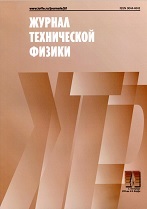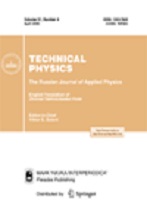|
This article is cited in 2 scientific papers (total in 2 papers)
To the 125th anniversary of Academician N.N. Semenov
Semiempirical methods for calculating liquidus temperatures in oxide systems
V. A. Vorozhtcovab, V. L. Stolyarovaab
a Saint Petersburg State University
b I. V. Grebenshchikov Institute of Silicate Chemistry of the Russian Academy of Sciences, St. Petersburg
Abstract:
Two semiempirical (geometrical and polynomial) methods are proposed for calculating liquidus temperatures in ternary and quaternary systems based on the data on equilibria in corresponding binary systems. The advantages, limitations, and peculiarities of application of the proposed semiempirical methods are considered. The reliability of the results of calculation of the liquidus temperatures in the Gd$_{2}$O$_3$–Y$_{2}$O$_3$–ZrO$_{2}$ system is illustrated by comparison with the available data on the phase equilibria. The possibility of estimating the position of the eutectic lines in multicomponent oxide systems in the temperature–composition coordinates is demonstrated. It is noted that the proposed semiempirical methods may find application in the future for estimating the values of liquidus temperatures in multicomponent systems to reduce the amount of experimental investigation of phase equilibria at high temperatures.
Keywords:
liquidus temperatures, oxide systems, zirconia, rare earth oxides, phase equilibria, thermodynamics.
Received: 09.10.2020
Revised: 23.12.2020
Accepted: 02.01.2021
Citation:
V. A. Vorozhtcov, V. L. Stolyarova, “Semiempirical methods for calculating liquidus temperatures in oxide systems”, Zhurnal Tekhnicheskoi Fiziki, 91:6 (2021), 904–914; Tech. Phys., 66:8 (2021), 958–968
Linking options:
https://www.mathnet.ru/eng/jtf4984 https://www.mathnet.ru/eng/jtf/v91/i6/p904
|


| Statistics & downloads: |
| Abstract page: | 40 | | Full-text PDF : | 45 |
|





 Contact us:
Contact us: Terms of Use
Terms of Use
 Registration to the website
Registration to the website Logotypes
Logotypes








 Citation in format
Citation in format 
